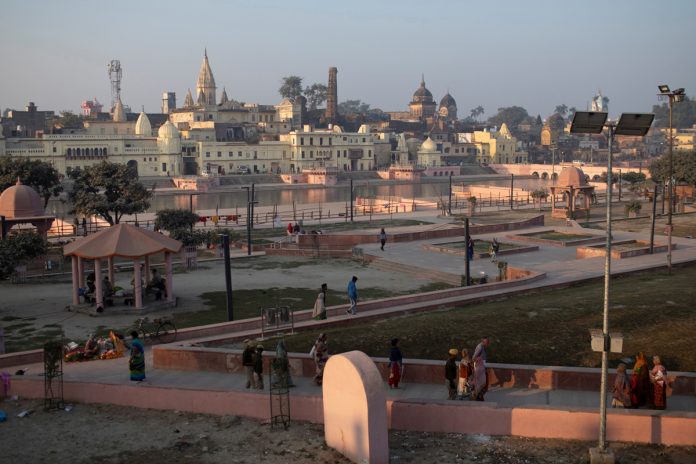Ayodhya: “Na Mathura, na Kashi, abki baar Awadhesh Pasi” (Neither Mathura nor Kashi, this time Awadhesh Pasi) — this rallying cry of the Samajwadi Party outshone the BJP’s Ram temple strategy in Ayodhya, causing significant embarrassment for the saffron camp.
Despite the BJP emphasizing the Ram temple across the country during these elections, the birthplace of Lord Ram rejected the party, which lost in four of the five assembly segments within the Faizabad constituency, including Ayodhya.
The Samajwadi Party took a bold step by fielding Awadhesh Prasad, a member of the scheduled caste Pasi community, for a general seat. A seasoned politician and nine-time MLA, Prasad defeated BJP’s Lallu Singh by 55,000 votes, with evident anti-incumbency sentiment against the two-time MP in rural areas.
For the first time since 1957, Faizabad has elected an SC representative to Parliament. “BJP left no stone unturned to seek votes in the name of the Ram temple. During the polls, the party ensured that all prominent leaders, governors from BJP-ruled states, and other dignitaries visited the Ram temple for political gain. However, the local people realized they were being misled,” Awadhesh Prasad stated.
The BJP highlighted the “development” around Ayodhya post-temple construction, but this transformation backfired. While Akhilesh Yadav’s PDA (pichhda, dalit, and alpsankhyak) strategy helped consolidate voters, the city’s development introduced various problems for locals.
Sharad Kapoor, director of the city’s oldest hotel, Shan-e-Awadh, remarked, “Barricades, police arrangements, traffic diversions, VIP culture, bureaucratic dominance, and inadequate compensation for property owners are issues affecting residents and traders. In rural areas, a sense of insecurity has gripped villagers.”
With land becoming increasingly valuable in Faizabad, local authorities have been regulating property transactions and acquiring agricultural land on the outskirts for expansion. Although BJP’s local leaders were aware of the unrest over these issues, they had little influence on decision-making.

